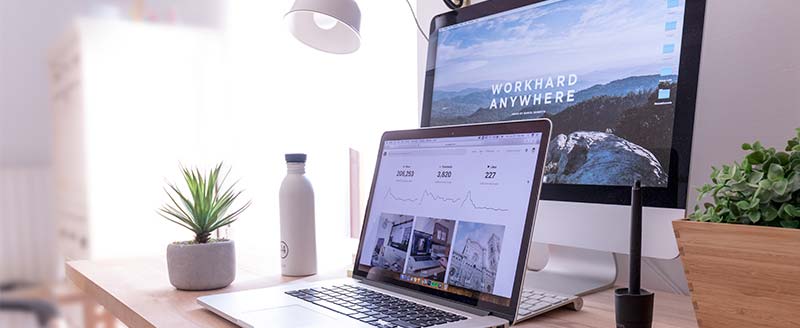Make time for things that you don’t have time for

What is time if not the most valuable thing we can spend? Time is also the most valuable resource that we have. But so often, in the flurry of tasks, responsibilities, and obligations we end up to not have time for things that really matter, for things that would really make a difference in our lives.
It has been a while since I wrote on productivity here. But this month, finding myself under a pile of deadlines and things to get done, the issue of not having time stood straight up in front of me. The phrase ‘I do not have time for this’ is not an option anymore, moreover it started pissing me off. If I do not have time for important things, for things that open up new opportunities for my personal and professional growth then it means one thing only — I am doing something wrong.
The way we think about time, assuming that we think about it at all, is mostly a limiting bobble that we find our initiatives and aspirations trapped in — so much to do and so little time to actually do it.
The paradox of this mindset is that the more we focus on how much time we have or do not have for doing certain things, the emptier our pocket of time gets and the longer our to-do lists grow.
But what if we shift our focus from ‘having time’ to ‘making time?’
I have learned this concept a long time ago but for some reasons that are far beyond my comprehension, I did not really attempt to implement this concept into my daily life.
But without shifting the way we think about time, planning and management systems will not be as effective and working as they could be. In most cases, they do not work at all.
Think of those endless to-do lists and planners in your life. Were they hundred percent effective? Did they help you to achieve everything you wanted? In my case, the answer would be no. And it is not because to-do lists and planning systems we use are not working or because we have less time than Pavel Durov or Stephen King. The problem is in our lack of understanding of and cooperation with time. It is like we just expect it to be there for us and if it is not there, wasted because of procrastination or sudden gust of anxiety, then, well, we say that we just do not have time for this.
This is why your dream of learning a foreign language, or writing a book (he-he, in my case, it is editing), is not coming true. Because you never have time to actually invest it into these activities and well, languages are not learned by itself nor are books written by itself.
How to make time for things you do not have time for?
Peter Drucker, management guru, in his book ‘The Effective Executive’ said and I quote:
‘Effective executives do not start with their tasks. They start with their time. And they do not start out with planning. They start by finding out where their time actually goes.’
We all have the same amount of hours a day at our disposal. The question is what we do with it.
Time blocking
I used to start my day with writing to-do lists and I was pretty convinced that it was the easiest and effective system that I could use. It was easy and fun to start the day from small tasks, marking off one task after another. And though the ‘to-do list,’ as a planning system, is a good addition to our time management, it derives our attention from time, which has the central role in our daily effectiveness race, to tasks. Even more so, it tricks us into making time for trivial things and almost never for the important things.
Time blocking, in addition to ‘to-do list,’ is the solution.
Now, instead of mindlessly starting your day with lists of tasks, your first focus is your time. Tasks that you can delegate or that are not important stay at the bottom of the list and out of your attention. But those tasks (deadlines/things that should be done no matter what, like appointments, calls, or meetings) go into time blocks on your calendar.
How to start time blocking?
Essential time reservations
A few weeks ago, I started more actively using Google Calendar and the first thing that I scheduled (daily) was blocks of time for essential things like sleeping, eating, walking, exercising. In other words, activities that are essential for our physical health because, let’s be real, in this productivity race we quite often tend to forget that we are just humans and despite all deadlines burning in the world, we have our needs. And for these needs to be met you need to reserve chunks of time.
Booked time reservations
In these time blocks, I schedule deadlines, appointments, calls, meetings, my language classes, in other words, all the important events that are scheduled on a certain time and that cannot be canceled or rescheduled by a whim.
Work time reservations
As a freelancer, one of the most important time reservations that I schedule on my calendar is time for my freelance work. There are time blocks for translation work, usually these blocks are the hugest ones because translation is my main job. And I’m also tutoring, so I schedule this too.
Please, note that I do not sign administrative work like answering emails or proposing to new clients and stuff like that to these time blocks. Work-time reservations are for doing actual work unless calling or answering emails is your work.
Studying time reservations
That is where I schedule time for studying, doing my language homeworks. I am taking new online courses all the time, so I schedule this too. And instead of creating new time block reservations for reading, I schedule my reading here as well.
If you are a student, you know how important it is to make time for studying.
Writing time reservations
This is the time when I do my blog and book writings or editing. If I am not restricted in time, I am also scheduling my podcast recordings here as well. But if you do not have a blog or you are not a writer of any kind, you can just easily skip this time block which means you will have more free time for the things that are important to you.
These are the main time blocks on my calendar, specially reserved time for things that matter to me. You can see that I have not scheduled things like cleaning or cooking and it is because the main idea of time blocking is to make time for things that matter first. Now, when I have scheduled the important things, I can see little free time blocks in my day which I can use for such trivial tasks like cleaning (I usually clean in small frames of time, like 15 minutes before bed or 15 minutes in the morning) or cooking.
In no way, I am saying that cooking is not important. What I am saying is that this activity should not take the central role in your time planning. Besides, healthy meals usually do not take that long to cook, so as long as you keep time for meals scheduled, you'll be fine.
I also do my administrative work like answering emails or posting on social media or uploading new blog posts in these free time blocks. It helps me to keep my focus on important things and still manage less important ones.
This system is so flexible that you can easily adopt it to your needs. But keep in mind the main idea behind it, which is to make time for important things first. It can be tempting to dive into simple trivial tasks first, marking them off your to-do list which creates a fake sense of effectiveness but in a long run is just a void where as a result you never have time for really important things.
“Efficiency is doing the thing right. Effectiveness is doing the right thing.”
― Peter F. Drucker







